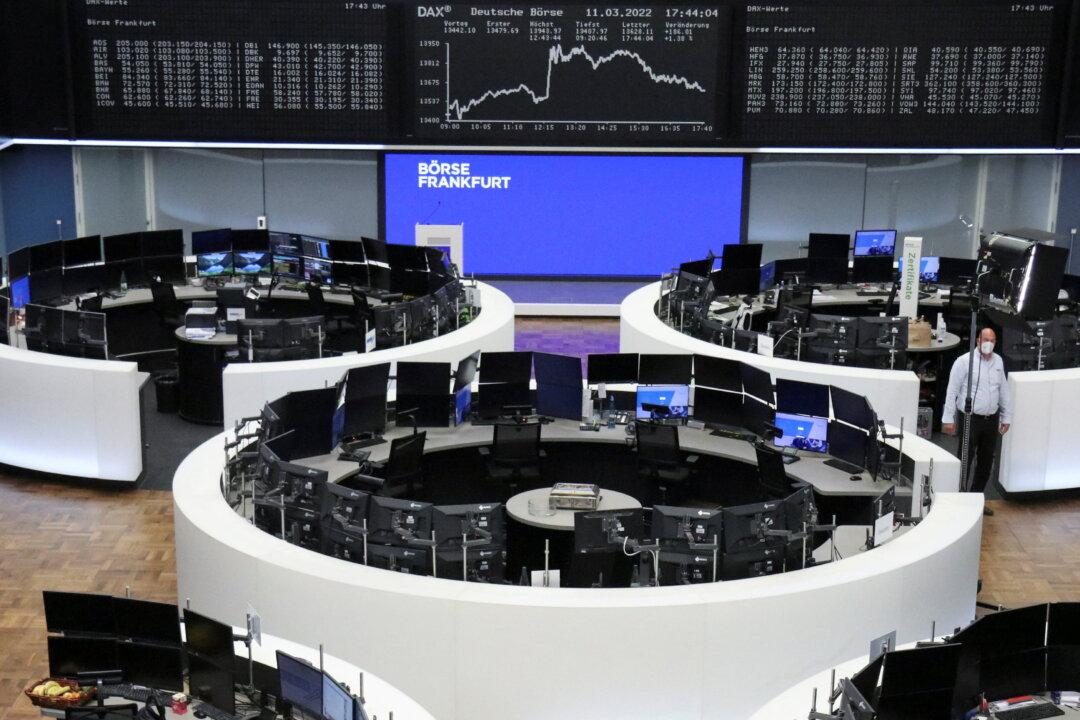LONDON—Shares slid worldwide on Tuesday as fears about weak earnings and slowing growth punctured the recent mini-rally, while hawkish remarks from European Central Bank Chief Christine Lagarde reminded edgy markets that rate hikes loom.
Nasdaq futures lost 2.06 percent, with traders blaming an earnings warning from Snap which saw shares in the Snapchat owner tumble 28 percent, while S&P 500 futures slipped 1.47 percent.





